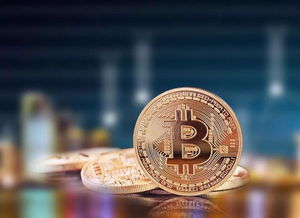Introduction

The world of cryptocurrencies has grown exponentially over the years, with Bitcoin being one of the most prominent digital currencies. However, as with any financial asset, there are legal and ethical considerations when it comes to acquiring and retaining Bitcoin. One such question that often arises is whether Bitcoin that has been acquired through illegal means should be returned. This article delves into the complexities surrounding this issue, examining legal precedents, ethical perspectives, and the implications of not returning Bitcoin acquired through questionable means.
Legal Framework for Bitcoin

To understand whether Bitcoin should be returned, it is crucial to first establish the legal framework surrounding the digital currency. Unlike traditional fiat currencies, Bitcoin operates on a decentralized network known as the blockchain. This decentralized nature has raised questions about the legal status of Bitcoin in various jurisdictions. However, many countries have recognized Bitcoin as a property right, which means it can be subject to the same legal principles that govern other forms of property.
Tags: Bitcoin, LegalFramework, Blockchain, PropertyRight

Illegal Acquisition of Bitcoin

When Bitcoin is acquired through illegal means, such as theft, fraud, or embezzlement, the legal question becomes whether the person who acquired the Bitcoin is required to return it. In many cases, the answer is yes. Legal systems around the world generally hold that property acquired through illegal means is subject to forfeiture, meaning it can be seized and returned to the rightful owner or the state.
Tags: IllegalAcquisition, Theft, Fraud, Embezzlement, Forfeiture

Legal Precedents

There have been several legal precedents that illustrate the principle of returning Bitcoin acquired through illegal means. For instance, in a high-profile case involving the Silk Road online marketplace, the U.S. government seized and returned Bitcoin that was used to facilitate illegal transactions. Similarly, in other cases involving stolen Bitcoin, courts have ordered the return of the digital currency to the victim.
Tags: LegalPrecedents, SilkRoad, BitcoinSeizure, VictimRestitution

Ethical Considerations

Beyond the legal implications, there are also ethical considerations when it comes to returning Bitcoin acquired through illegal means. Those who have acquired Bitcoin through illegal activities may argue that they have a legitimate claim to the currency, as they were not the ones who committed the original crime. However, ethical perspectives often argue that the act of returning stolen property is the right thing to do, as it helps to restore justice and prevent further harm to the victim.
Tags: EthicalConsiderations, Restitution, Justice, StolenProperty

Challenges in Returning Bitcoin

Returning Bitcoin acquired through illegal means can be challenging due to several factors. One of the primary challenges is the decentralized nature of the blockchain, which makes it difficult to trace the ownership of Bitcoin. Additionally, the anonymous nature of Bitcoin transactions can make it difficult to prove that a particular Bitcoin was acquired through illegal means. These challenges can lead to lengthy legal battles and uncertain outcomes.
Tags: Blockchain, Decentralization, Anonymity, LegalBattles, UncertainOutcomes

Conclusion

In conclusion, whether Bitcoin should be returned when acquired through illegal means is a complex issue with legal and ethical implications. While legal systems generally hold that property acquired through illegal means should be returned, the challenges of tracing and proving ownership can make this process difficult. Ethical perspectives also argue for the return of stolen property to restore justice. As the world continues to navigate the complexities of cryptocurrencies, it is essential to consider both the legal and ethical aspects of acquiring and returning Bitcoin.
Tags: Conclusion, LegalEthicalConsiderations, BitcoinReturn, Cryptocurrency, LegalChallenges

